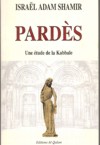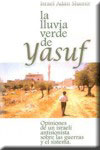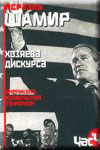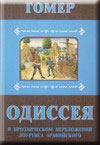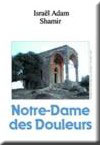Oslo and the end of Palestinian independence
Joseph Massad
The Oslo agreement did not only usher in a new era of Palestinian- Israeli relations but has had a much more lasting effect in transforming the very language through which these relations have been governed internationally and the way the Palestinian leadership viewed them. Not only was the Palestinian vocabulary of liberation, end of colonialism, resistance, fighting racism, ending Israeli violence and theft of the land, independence, the right of return, justice and international law supplanted by new terms like negotiations, agreements, compromise, pragmatism, security assurances, moderation and recognition, all of which had been part of Israel's vocabulary before Oslo and remain so, but also Oslo instituted itself as the language of peace that ipso facto de-legitimises any attempt to resist it as one that supports war, and dismisses all opponents of its surrender of Palestinian rights as opponents of peace. Making the language of surrender of rights the language of peace has also been part of Israel's strategy before and after Oslo, and is also the language of US imperial power, in which Arabs and Muslims were instructed by President Barack Obama in his speech in Cairo last June. Thus the transformation that Oslo brought about was not only a transformation of language as such, but also of the Palestinian language and perspective through which the nature of Palestinian- Israeli relations were viewed by the Palestinian leadership, and that institutionalised instead the Israeli perspective and Israel's vocabulary as neutral and objective. What Oslo aimed to do, therefore, was change the very goal of Palestinian politics from national independence from Israeli colonialism and occupation to one where Palestinians become fully dependent for their political and national survival on Israel and its sponsors in the interest of peace and security for their occupiers.
The key transformative formula of the Oslo agreement enshrined in the Declaration of Principles of 13 September 1993 is "Land for Peace". This detrimental formula to internationally recognised Palestinian rights remains the guiding and delimiting approach of all subsequent agreements -- and disagreements -- between the Palestinian Authority (PA) and successive Israeli governments. This formula alone prejudices the entire process by presupposing that Israel has "land" which it would be willing to give to the "Arabs", and that the "Arabs" -- seen as responsible for the state of war with Israel -- can grant Israel the peace for which it has longed for decades. Placing the responsibility of the Arab-Israeli wars on the "Arabs" is a standard view that is never questioned in the Western media or by Western governments. The Palestine Liberation Organisation (PLO) concession, however, has finally ensured that official Palestinians and other official Arabs, too, will not question it. Despite its surface appearance as a political compromise, this formula is in fact a reflection of the racial views characterising (European Jewish) Israelis and Palestinian and other Arabs. Whereas the Israelis are asked and are ostensibly (presented as) willing to negotiate about property, the recognised (Western) bourgeois right par excellence, Palestinians and other Arabs are asked to give up violence -- or more precisely "their" violent means -- as illegitimate and attributable only to uncivilised barbarians. The fact that Palestinians have already given up their rightful claim to 77 per cent of Palestine and were negotiating about their future sovereignty over a mere 23 per cent of their homeland did not qualify for a formula of "land for land" on which to base the "peace process". In fact, the objective formula for any negotiations would be a "land for peace" formula whereby it is Palestinians who are giving up their rights to their historic homeland in exchange for an end to Israeli oppression of -- and colonial violence against -- their people.
The PLO, Israel, and the Western media hailed the Oslo agreement as "mutual recognition". This, however, contradicts the actual words uttered by both parties, and the projected actions based on these words. Whereas the PLO (which wrote the first letter) recognised "the right of the state of Israel to exist in peace and security," the Israeli government, "in response" to Yasser Arafat's letter, "has decided to recognise the PLO as the representative of the Palestinian people and commence negotiations with the PLO within the Middle East peace process." But this is not mutual recognition, as the Israelis did not recognise the Palestinian people's right to exist in a state of their own in peace and security as the PLO had done vis-à-vis Israel. Had the PLO only recognised the Rabin government as the representative of the Israeli people, without necessarily granting any "right" to the Israeli state to exist in peace and security, then the PLO's recognition would have been on a par with Israel's. The actual agreement, therefore, did not amount to mutual recognition; rather, it amounted to the legitimation of the Jewish state by the very people against whom its racist colonial policies have been -- and continue to be --practised, with the Israelis committing to nothing substantively new. Granting the PLO recognition as the representative of the Palestinians (something the majority of the world -- except the US -- had recognised since the mid-1970s) committed Israel to no concessions to the Palestinian people. It committed Israel only to a scenario whereby since the Israeli government was inclined to speak to "representatives" of the Palestinians, it would talk to the PLO, as it now recognised that party as their representative, whereas before it did not. This is precisely why successive Israeli governments and leaders have vacillated on whether they would grant the Palestinians the right to establish an independent state and always refer back to Oslo and subsequent agreements in which they made no such pledge.
Having exacted a precious recognition of their legitimacy from their victims, the Israelis moved forward through the mechanism of the Oslo peace process to divide the Palestinians into different groupings, the majority of whom would be expelled outside the peace process. By transforming the PLO, which represented all Palestinians in the Diaspora and in Israel and the occupied territories, including East Jerusalem, into the Palestinian Authority (PA) which could only hope to represent Palestinians of the West Bank and Gaza, constituting one third of the Palestinian people, the Oslo agreements engineered a major demographic reduction of the Palestinian people, dividing them by a factor of three while bringing about a major demographic expansion of the Jewish population of Israel, multiplying their number by a factor of three. The insidious part of this process is how the PA, conscious of this transformation, continues to speak of the "Palestinian people", which had been reduced through the Oslo Accords to those West Bank and Gaza Palestinians it now claims to represent. Diaspora Palestinians are simply referred to, in accordance with US and Israeli parlance, as "refugees", and Israeli Palestinians are referred to by Israeli diktat as "Israeli Arabs". In doing so, not only has the scope of the Palestinian leadership and its representative status of the whole Palestinian people been substantially reduced, but the Palestinian people themselves were diminished demographically by the PA's appropriation of the designation "Palestinian people" to refer to a mere third of Palestinians.
In the meantime, the Oslo process which produced phantom agreements like the Geneva Accords, among others, has pushed forward the Israeli claim that Palestinians must recognise Israel's right to exist not only in peace and security but also as a Jewish state, meaning a state that is racist by law and discriminates by law and governance against non-Jewish citizens, and one that encompasses not only its Jewish citizens but Jews everywhere. This is something that has been pushed by the Clinton, Bush, and more recently the Obama administrations. Indeed Obama does not miss an opportunity to reiterate his administration's commitment to force the Palestinians to recognise Israel's right to be a "Jewish state". While Israel has no legitimacy and is not recognised by any international body as a "representative" of Jews worldwide, but rather as the state of the Israeli people, who are citizens of it, the PLO and the PA are called upon to recognise Israel's jurisdiction over world Jewry. As such, the internationally recognised status of the PLO as the representative of the Palestinian people has been reduced to one third of Palestinians since Oslo, while the representative status of the Israeli government has been expanded threefold as recognised by the PA's unofficial representatives in Geneva. Binyamin Netanyahu is insistent that no progress will take place in the so-called peace process unless the Palestinians officially recognise Israel's right to be a racist Jewish state. President Obama has also called on all Arabs to ratify this recognition officially. This has been done despite the fact that the majority of Jews living outside Israel are not Israeli citizens and that no bodies representing them ever endowed the Israeli state with representative powers on their behalf.
Dividing and reducing the Palestinian people demographically has gone hand in hand with the territorial reduction of Palestine, or the parts of it that Israel is willing to negotiate over after redeploying its colonial occupation army around. Aside from the removal of the illegally expanded, occupied and colonised East Jerusalem (now expanded to many times its original size at the expense of West Bank lands) from the territories over which Israel would negotiate its redeployment, the West Bank itself has been subdivided into cantons that exclude Jewish colonial settlements and Jewish-only highways connecting them, as well as imposed nature reserves, military bases and closed areas. But this is not all. Israel also built the apartheid wall inside Palestinian land, effectively removing another 10 per cent of the West Bank from the negotiating table and its army redeployment. Another of the more important measures that the Israeli and Palestinian architects of the Oslo agreement took in order to guarantee the structural survival of the Oslo "peace process" was the creation of structures, institutions and classes that would be directly connected to it, and that can survive the collapse of the Oslo agreement itself while preserving the "process" that the agreement generated. This guarantee was enshrined in law and upheld by international funding predicated on the continuation of the "Oslo process", as long as the latter continued to serve Israeli and US interests as well as the interests of the corrupt Palestinian elite that acquiesced in it.
The five main classes that the architects of Oslo created to ensure that the "process" survives are: a political class, divided between those elected to serve the Oslo process, whether to the Legislative Council or the executive branch (essentially the position of president of the PA), and those who are appointed to serve those who are elected, whether in the ministries, or in the presidential office; a policing class, numbering in the tens of thousands, whose function is to defend the Oslo process against all Palestinians who try to undermine it. It is divided into a number of security and intelligence bodies competing with one another, all vying to prove that they are most adept at neutralising any threat to the Oslo process. Under Arafat's authority, members of this class inaugurated their services by shooting and killing 14 Palestinians they deemed enemies of the "process" in Gaza in 1994 -- an achievement that earned them the initial respect of the Americans and the Israelis who insisted that the policing class should use more repression to be most effective. Their performance last summer in Jenin of killing Hamas members and unaffiliated bystanders to impress President Obama who asked the Palestinian leadership to keep their security part of the deal is the most recent example of this function.
Also: a bureaucratic class attached to the political class and the policing class and that constitutes an administrative body of tens of thousands who execute the orders of those elected and appointed to serve the "process"; an NGO class: another bureaucratic and technical class whose finances fully depend on their serving the Oslo process and ensuring its success through planning and services; and, a business class composed of expatriate Palestinian businessmen as well as local businessmen -- including especially members of the political, policing and bureaucratic classes -- whose income is derived from financial investment in the Oslo process and from profit-making deals that the PA can make possible. While the NGO class mostly does not receive money from the PA, being the beneficiary of foreign governmental and non- governmental financial largesse that is structurally connected to the Oslo process, the political, policing, and bureaucratic classes receive all their legitimate and illegitimate income from the PA directly.
By linking the livelihoods of hundreds of thousands of Palestinians to the Oslo process, the architects had given them a crucial stake in its survivability, even and especially if it failed to produce any political results. For the Palestinian elite that took charge of the PA, the main task all along was to ensure that the Oslo process continues and that the elite remain in control of all the institutions that guarantee the survival of the "process". What the elite did not anticipate was that they could lose control to Hamas, a public opponent of the Oslo process that in accordance with expectations had boycotted the 1994 gerrymandered and Fatah- controlled elections. The 2006 elections, which Fatah was confident it would win, constituted an earthquake that could destroy all these structural guarantees and with them the "process" they were designed to protect. Hence the panic of the Americans who engineered the coup with the aid of Israel and PA security under Mohamed Dahlan to topple the Hamas government, which included kidnapping its members of parliament, government ministers, and politicians and holding them hostage in Israeli jails, and finally staging a violent takeover of Gaza that backfired. All attempts since the American failed coup in Gaza have focussed on perpetuating the peace process through maintenance of its structures under PA control and away from the democratically elected Hamas.
Indeed, the destruction of Palestinian democracy was a necessary price to pay, insisted Israel and the Americans, pushed forward by the military efforts of Lieutenant General Keith Dayton. This situation became possible because of the funding strategy of the US, Israel and Arab oil producing states towards the Palestinian struggle. The story of the Palestinian national movement can only be told through the ways and means that different Arab and non-Arab governments have tried to control it. While the PLO was established and controlled principally by the regime of Gamal Abdel-Nasser, the 1967 defeat weakened that arrangement leading to the revolutionary guerrillas takeover of the organisation in 1969. With Fatah and the leftist Palestinian guerrillas at the helm, the revolutionary potential of the PLO constituted such a threat that it precipitated an all-out war in Jordan in 1970, a situation that powerful and repressive Arab regimes did not want to see repeated. It is in this context that Arab oil money (from Saudi Arabia, Kuwait, Libya, the United Arab Emirates and Iraq) began to pour into the coffers of the PLO, primarily to ensure that it would not encourage revolutionary change in Arab countries and that insofar as it did not compromise Arab regime interests its weapons should only be directed towards Israel. The Lebanese civil war and the PLO role in it in the second half of the 1970s remained a problem but, as far as they were concerned, it was a problem that Arab regimes were able to contain.
With the onset of the 1980s and the military defeat of the PLO in 1982 in Beirut, Arab funding for the PLO was no longer conditioned on its not turning its weapons against them only, but that the organisation would also no longer target Israel. The various attempts at agreements between the PLO and King Hussein in the mid- 1980s were part of that plan. With continued Israeli and US refusal to deal with the PLO no matter how much its policy and ideology had changed, the situation remained frozen until the first Palestinian uprising in 1987 gave the PLO the bargaining opportunity to lay down its weapons against Israel. The formalisation of this transformation took place in Algiers in 1988 and later at the Madrid Peace Conference in 1991.
As oil funding dried up after the Gulf War of 1990-91, the PLO needed new funders. Enter the United States and its allies whose terms did not only include the Oslo agreement but also that the newly created and Fatah-controlled PA be indeed armed but that its weapons should have a new target: the Palestinian people themselves. The PA obliged and continued to receive its funding until the second Intifada when, contra their raison d'être, some of its security forces did engage the Israelis in gunfire when the Israelis attacked Palestinians. Funding was intermittently stopped, Arafat was placed under house arrest, and the Israelis reinvaded. A resumption of steady funding continued after Arafat's death conditional upon Mahmoud Abbas's "seriousness" in pointing Palestinian guns at the Palestinians themselves, which he and the PA's thuggish security apparatuses have done. However, they have not been as effective as the US and Israel had wished, which is why General Dayton is assuming full control of the military situation on the ground in order to "assist" the Palestinians to deliver their peace part of the bargain to Israel.
Note that throughout the last 16 years, Israeli leaders have consistently said, in line with the formula of land for peace, that they want and seek peace with the Palestinians, but not the establishment of a Palestinian state, nor in order to ensure the Palestinians' right to self- determination. Indeed, not only has Israel multiplied the number of settlements and more than doubled the Jewish colonial settler population of the West Bank and East Jerusalem, chipping away at more of the land that was said to be under negotiations, it has done so while consistently exacting more Palestinian concessions to ensure Israeli "security" in order for the Palestinians to give Israel the "peace" on which the formula of "land for peace" is based. The Americans and the Europeans have also insisted that the Palestinians must give Israel peace before it can decide which lands to give them back and under whichever arrangement it finds most ensuring of this "peace". Therefore, what land for peace -- despite or because of its definitional prejudice against the Palestinian people -- has brought about is a perpetual deferment of the return of land with insistent demands of advance payments on the peace the Palestinians must deliver. While the redeployment around Gaza and laying siege to its population, starving and bombarding them, is marketed as Israel's compromising by returning land, the reality remains that the Gaza Strip has been transformed from a prison policed by the Israelis into a concentration camp guarded and surrounded by them from the outside with infiltration inside as the need arises, as it did last winter.
Ultimately then, what the Oslo agreement and the process it generated have achieved is a foreclosure of any real or imagined future independence of the Palestinian leadership, or even national independence for one third of the Palestinians in the West Bank and Gaza who are, at any rate, the only Palestinians that the Oslo agreement claims to want to help achieve it. By mortgaging the Palestinian leadership to US and Israeli sponsorship, by creating and maintaining administrative, legal and financial structures that will ensure this dependence, Oslo has been what it was designed to be from the start: the mechanism of ending the Palestinian quest to end Israeli colonialism and occupation, and the legitimation of Israel's racist nature by the very people over whom it exercises its colonial and racist dominion. Anyone who questions these strictures can be fought with the ideological weapon of pragmatism. Opposing Oslo makes one a utopian extremist and rejectionist, while participating in its structure makes one a pragmatist moderate person working for peace. The most effective ideological weapon that Oslo has deployed since 1993 is precisely that anyone who opposes its full surrender of Palestinian national rights is a proponent of war and an opponent of peace. In short, the goal of the Oslo process, which has been reached with much success, is not the establishment of Palestinian independence from Israel's illegal occupation, but rather to end Palestinian independence as a future goal and as a current reality. Seen from this angle, Oslo continues to be a resounding success.
* The writer teaches modern Arab politics and intellectual history at Columbia University. This is the text of a speech he delivered at a conference in Oslo in 2009.




